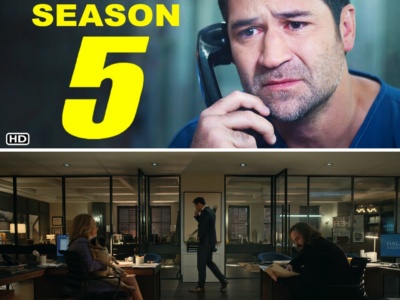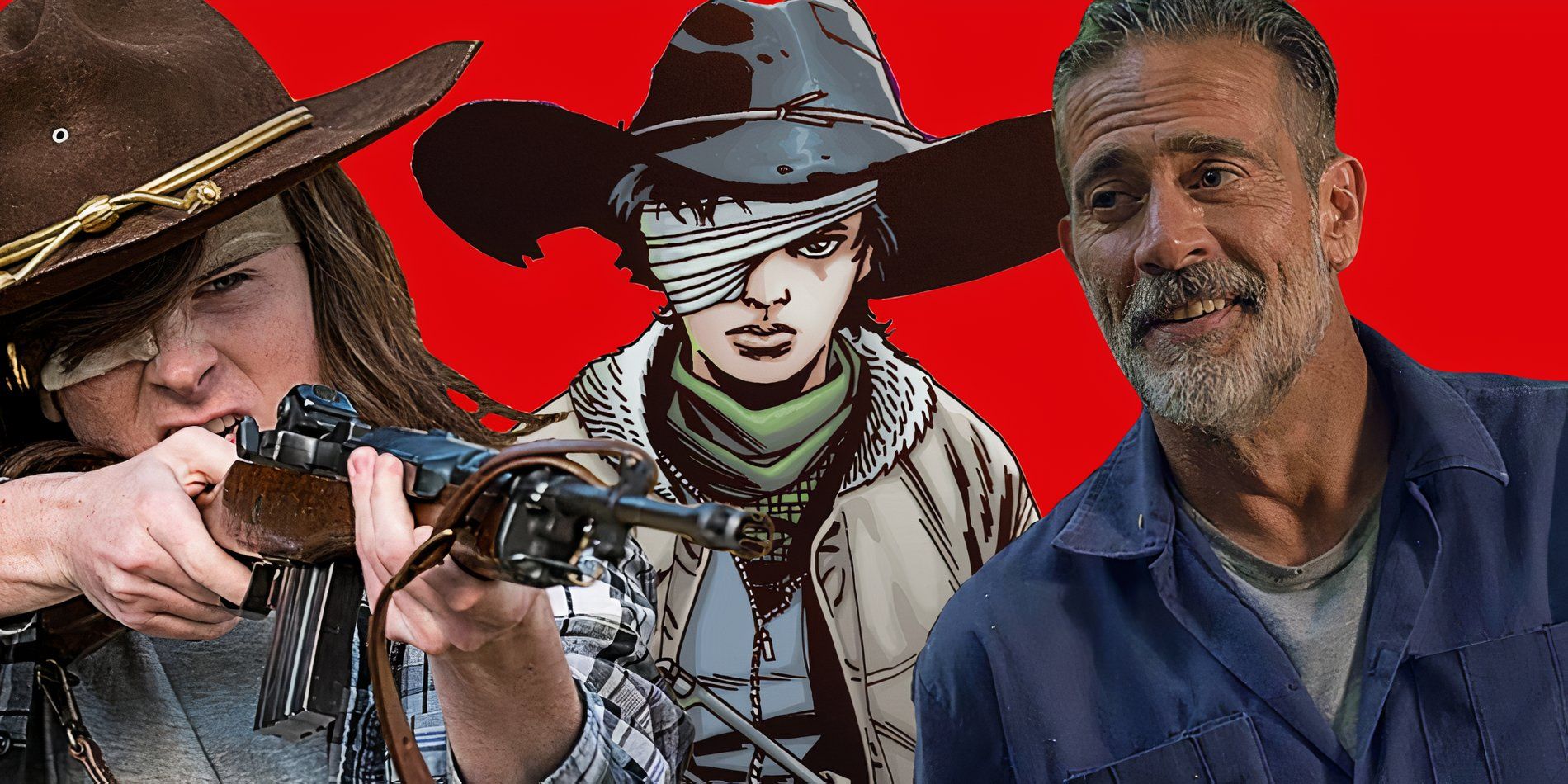
Fans of The Walking Dead comic book series appreciate the television adaptation’s relatively faithful depiction of the story – yet there are, of course, some major differences, and Negan’s first words to Carl in the comic highlight the sharpest divides. While the TV series generally stayed true to the comic, there are notable moments where the balance between adhering to the source material and introducing new elements becomes particularly significant.
The Walking Dead Deluxe #100 – written by Robert Kirkman, with art by Charlie Adlard – revisits the pivotal first interaction between the two characters, one that foreshadowed Carl’s future in the series, offering one of the most striking examples of the profound influence Carl Grimes had on the overall narrative of the comic, which was ultimately not the case in the series.
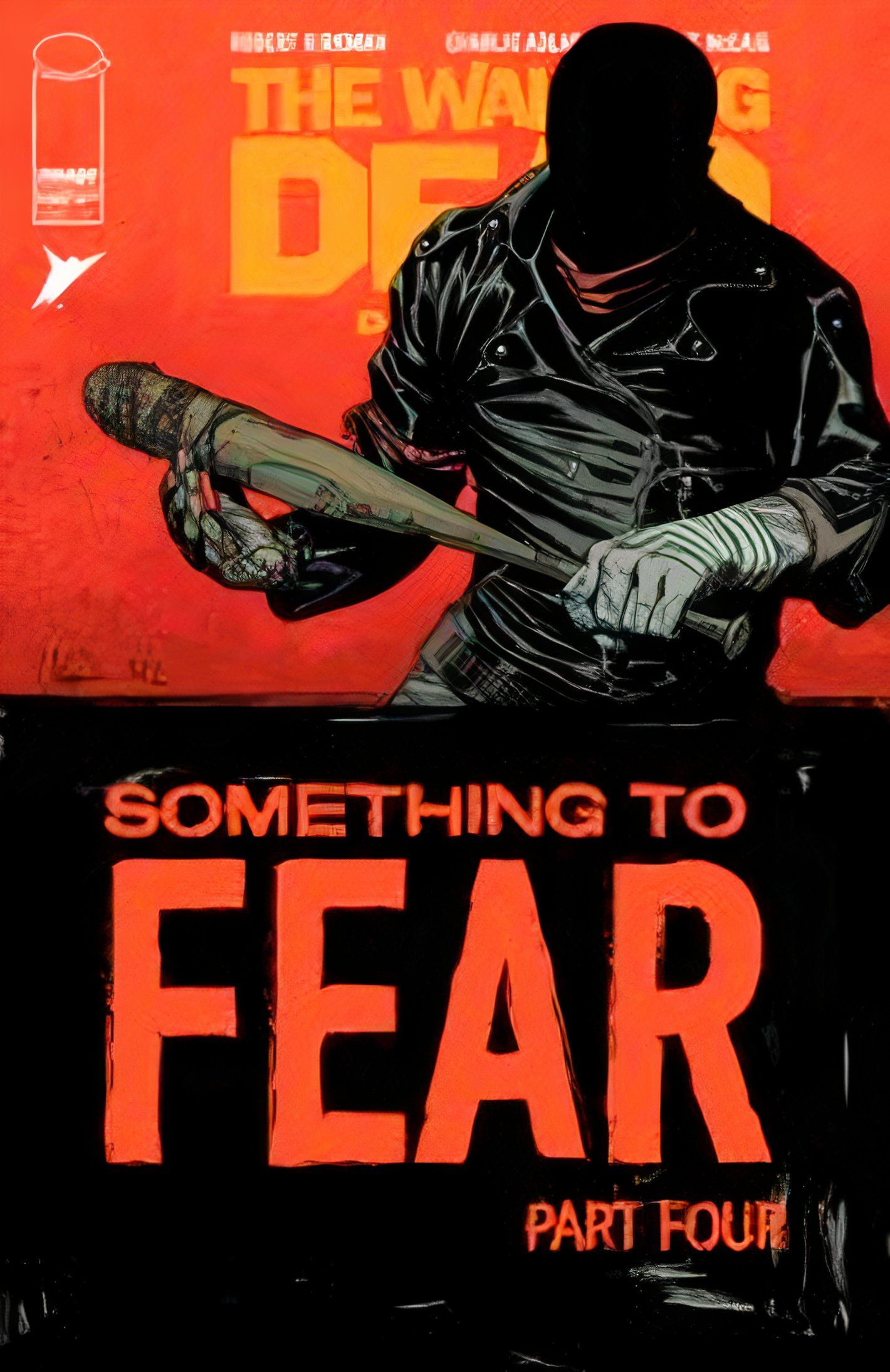
As detailed in the monumental issue, Carl’s initial meeting with Negan occurred after the antagonist and his crew of Saviors captured Rick and a group of survivors, including Carl. The group was on their way to inform the Hilltop community about the looming threat Negan posed.
Negan’s Treatment Of Carl In The Comic Book Foretells A Future That Is Never Considered In The Television Series
The Walking Dead Deluxe #100 – Written By Robert Kirkman; Art By Charlie Adlard; Color By David McCaig; Lettering By Rus Wooten
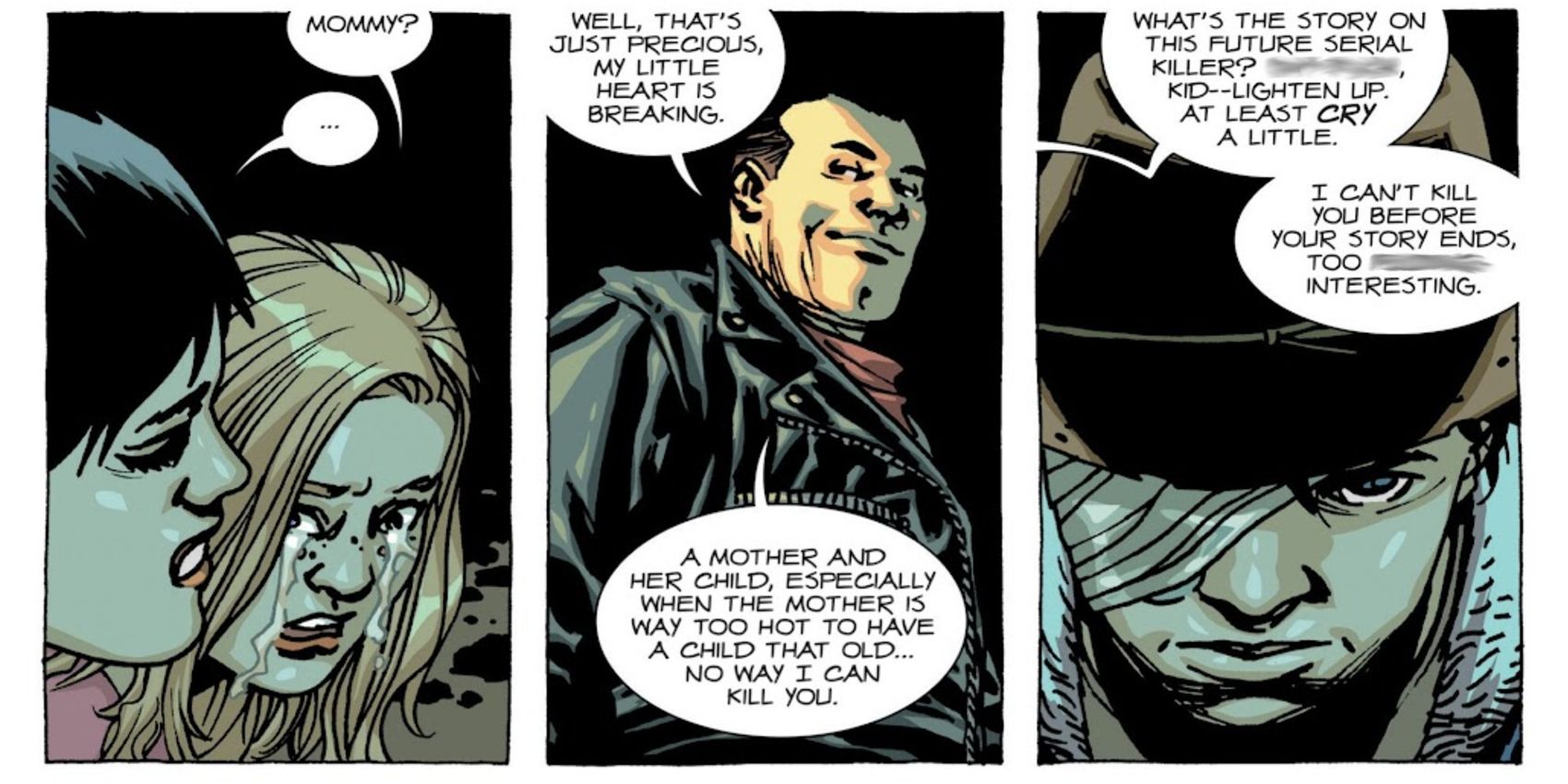
As The Walking Dead Deluxe #100 progresses, Rick and his group are intercepted by the Saviors and Negan. Enraged over the deaths of several of his men during the assault on Alexandria, Negan decides to exact revenge by killing one of the captives. While deliberating on who should pay the price, Negan quickly dismisses the idea of choosing Carl. In his view, even amidst the dire circumstances humanity currently faces, Carl has the potential to achieve great things; killing him now, Negan reasons, would essentially deprive the world of that future greatness.
As proven by the final issue of Walking Dead , Negan’s analysis of Carl was spot on. Not only did he become a pivotal figure, but he also survived until the end of the story and beyond.
At the time, Negan’s comment seemed like nothing more than his typical grandstanding and baiting of Rick and his followers. However, as proven by the final issue of Walking Dead, Negan’s analysis of Carl was spot on. Not only did he become a pivotal figure, but he also survived until the end of the story and beyond. Of course, Negan had no way of truly knowing that the story’s central focus would shift to Carl. It was just a sense he had, a vibe he picked up from a boy who, when threatened with death, proved to be the “hardest” person in the group.
Carl’s Significance In The Comic’s Ending Is The TV Adaptation’s Biggest Point Of Divergence
The Walking Dead #193 Serves As The Series’ “Epilogue”
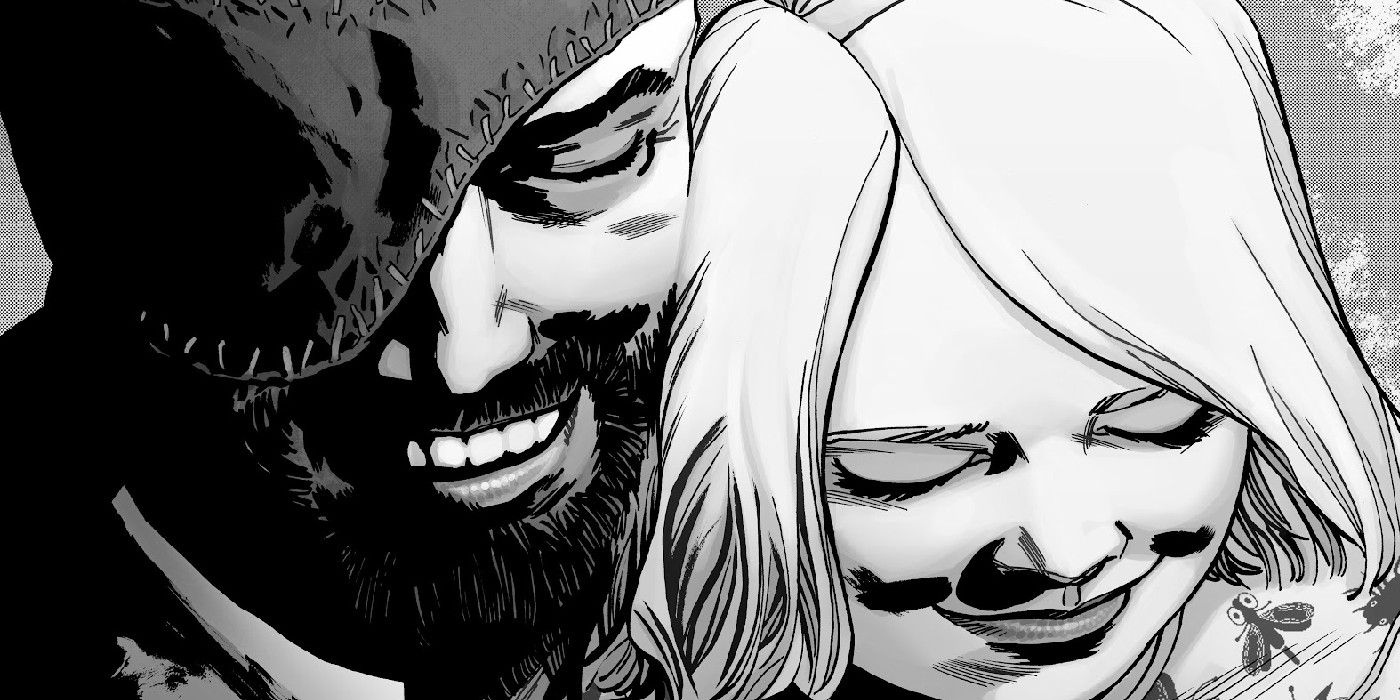
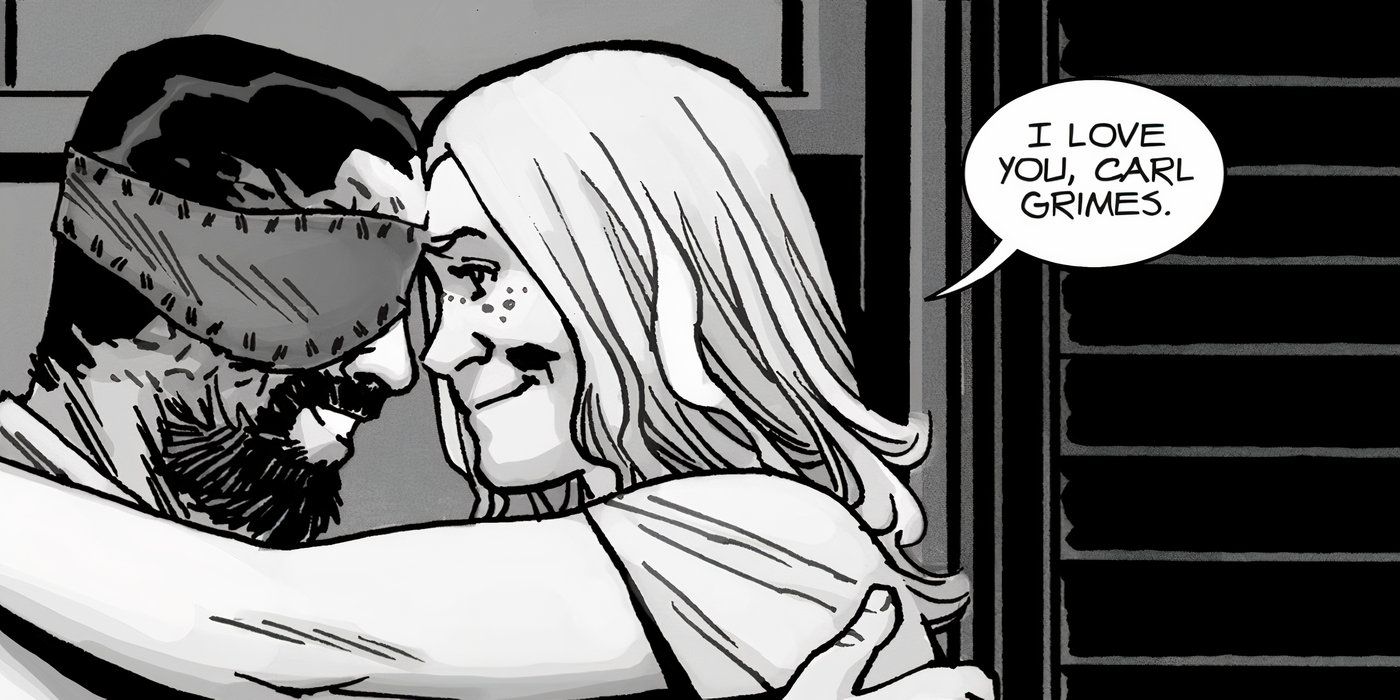
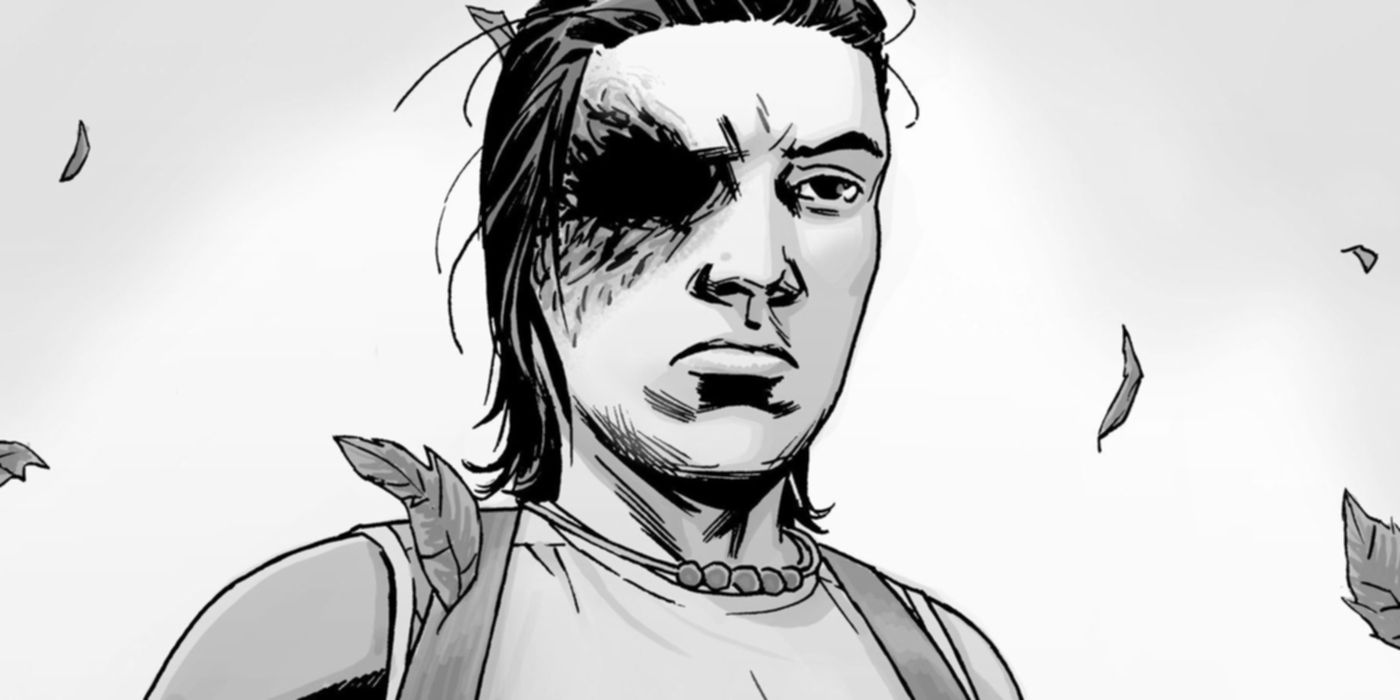

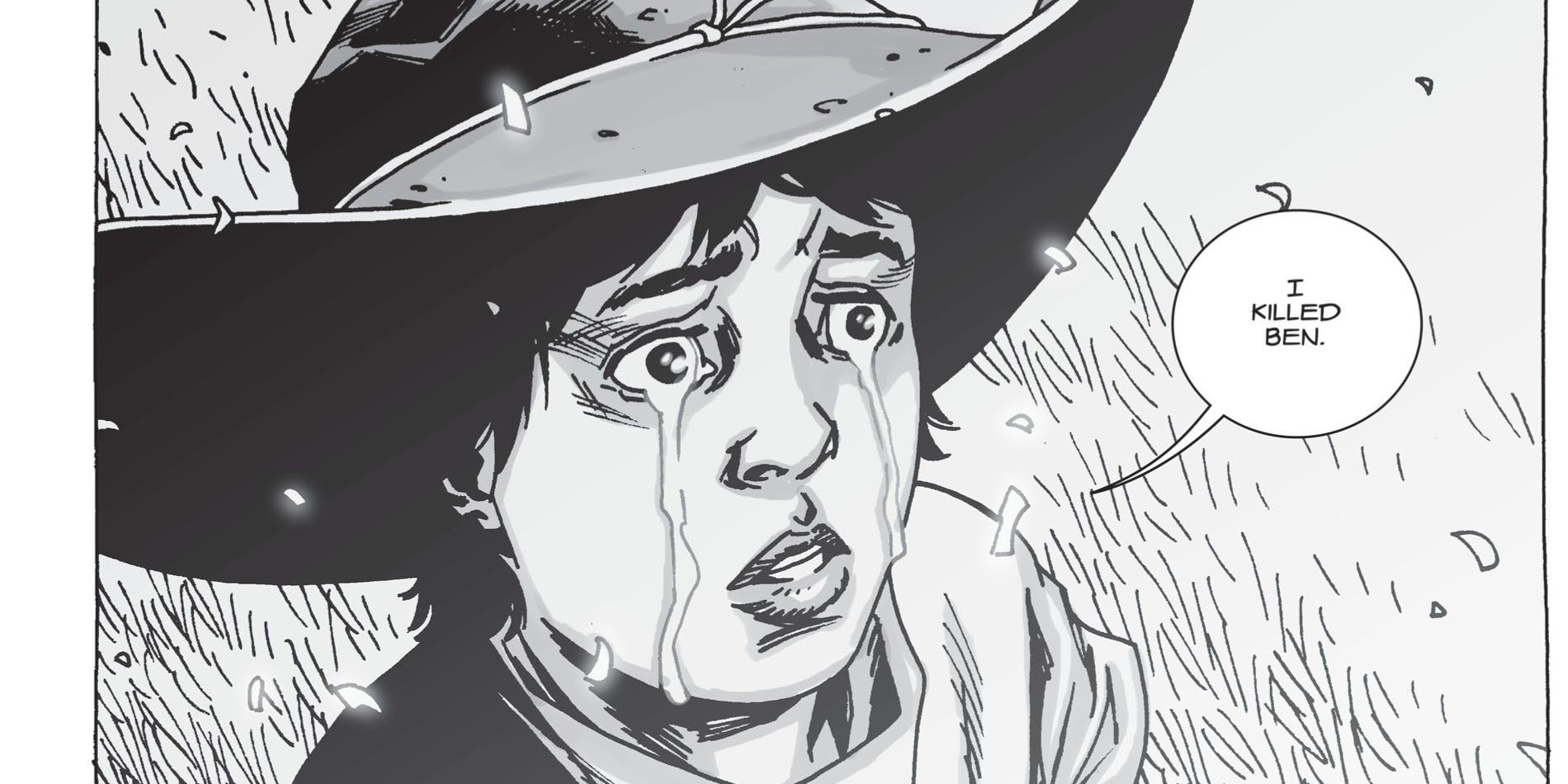





It is worth noting that Walkinh Dead author Robert Kirkman likely recognized by this point that The Walking Dead narrative was shifting to become “Carl’s story.” In fact, he had been laying the groundwork for this transition for some time. A notable example is Carl’s conversation with his father in The Walking Dead Deluxe #99, where he urges Rick to see him as a valuable member of their group, rather than just as his son. Negan’s roadside comment about Carl serves as Kirkman’s deliberate nod to fans, hinting that greater things await the young protagonist.
As viewers know, Carl’s journey in The Walking Dead television series took a different path. Similarly, while Negan recognizes that Carl is different from the others, this dynamic lacks the intense, life-and-death context portrayed in the comic book. In the television series, Negan has little meaningful interaction with Carl. Like the other survivors, Carl shows fear before Abraham and Glenn are killed and shock afterward. Furthermore, despite his belief that Carl is special, Negan later appears willing to kill – or at least seriously harm – him if it serves to establish dominance and control over Rick and his group.
The Walking Dead TV Series Had To Diverge From The Comic – But Carl’s Absence From The Ending Changes Things
The Adapation Lacks The Closure Of Kirkman’s Series Finale
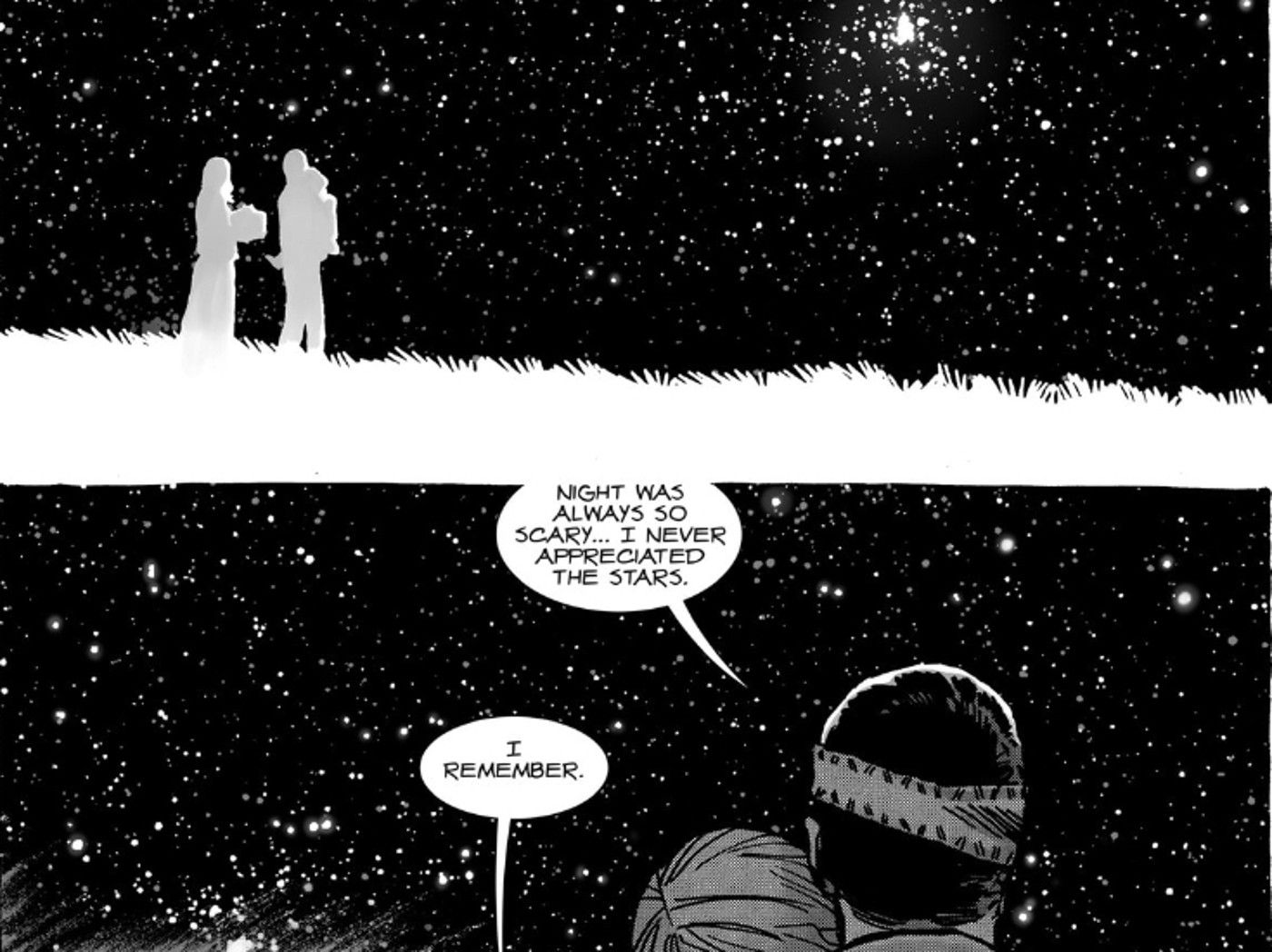
To be sure, while he remained a key character, offering a compelling exploration of how children grow and mature in a zombie apocalypse — similar to his comic book counterpart — his evolution into a capable survivor and potential future leader was cut short by his death in Season 8. Despite his progression from a secondary character to a central figure, the creators ultimately sacrificed Carl’s life to advance his father Rick’s storyline. Unlike in the comics, Carl never became the focal point of the TV series; instead, the narrative focus remained on Rick until his departure.
While Carl’s story showed promise in the television series, the comic book series brought his narrative to its logical conclusion. As a child of the zombie apocalypse, shaped by its relentless hardships, Carl developed exceptional survivalist skills, outliving not only his family – resilient as they were – but also many of the original survivors he journeyed with. Along the way to brighter days, he blossomed into a true leader, emulating his father’s example. This uplifting ending provides a poignant contrast to the otherwise tragic tale that’s unfortunately overlooked by The Walking Dead TV series adaptation.
The Walking Dead Deluxe #100 is available now from Image Comics.
